Search Images
Browse Content (p. 1046)
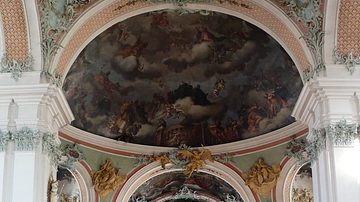
Image
Abbey Cathedral of St. Gallen
Founded c. 720 CE, the Abbey Cathedral of St. Gallen, Switzerland, was designated as a UNESCO World Heritage site in 1983 CE.
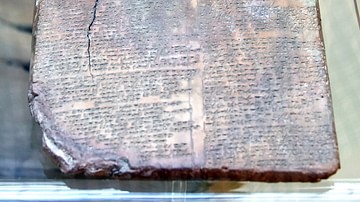
Image
Training Horses Tablet from Hattusa
Lines 31-42 of this clay tablet describes the methods used by Kikkuli of the Mittani for training horses: "...On eight successive nights, they are walked 5 kaskal-BU (5 x 10 Km). For eight nights, they are groomed and run for 7 iku (7 x...
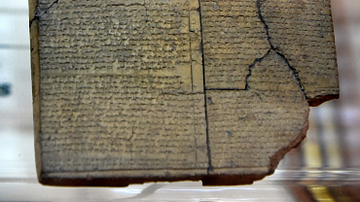
Image
The Tablet of the Apology of Hattusilis III from Hattusa
This clay tablet starts with "...But when my father Mursilis (Muršiliš) became a god, and my brother Muwatallis (Mwuatalliš) sat upon the throne of his father, I became a general in the presence of my brother, and then my brother appointed...
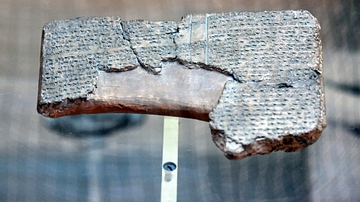
Image
The Song of Ullikummis Tablet from Hattusa
The most interesting Hittite legend embodying the characteristics of a Hurrian mythology is the one related to Kumarbiš, the father of the gods. Tešup has taken the palace of Kumarbiš at the head of the divine kingdom. Kumarbiš abhors this...

Image
Great Mosque, Cordoba
The Great Mosque of Cordoba, Spain (784–1236 CE). Prayer hall of Abd al-Rahman.
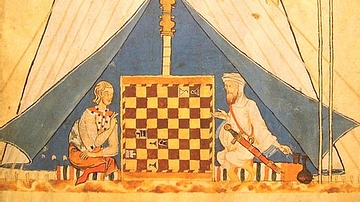
Image
Christian & Muslim Playing Chess
An illustration from The Libro de los Juegos (13th century CE) that shows a game of chess between a Muslim and a Christian. (Monasterio de El Escorial, Spain)

Image
Frederick II & Al-Kamil
A 14th century CE manuscript illustration depicting Frederick II, Holy Roman Emperor (r. 1220-1250 CE), and the Sultan of Egypt and Syria al-Kamil (r. 1218-1238 CE) who negotiated the handing over of Jerusalem to Christian rule during the...
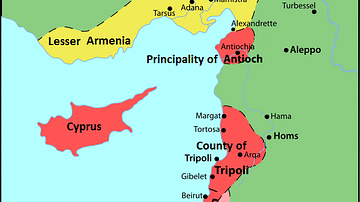
Image
Map of the Crusader States, 1229-1240 CE
A map indicating the territories controlled by the Crusader States or Latin East from 1229 CE to 1240 CE after the Sixth Crusade (1227-1229 CE)
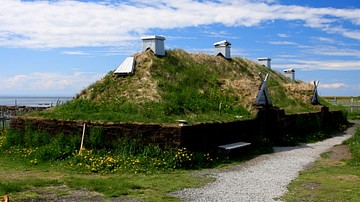
Image
L'Anse aux Meadows - Reconstructed Hall
Reconstructed Viking dwelling from the archaeological site of L'Anse aux Meadows, a Viking settlement in Newfoundland, North America, which was built and occupied around 1000 CE. It could house up to 70-90 people who would use the site while...
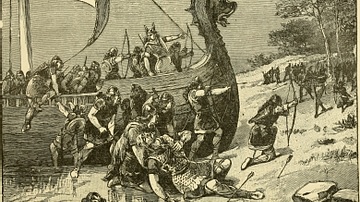
Image
Thorvald, Son of Erik the Red, is Killed
Artist's rendition of the story from the Vinland Sagas in which the Viking Thorvald, brother of Leif Erikson and son of Erik the Red, encounters natives in North America while on expedition there, and dies after being pierced by one of their...